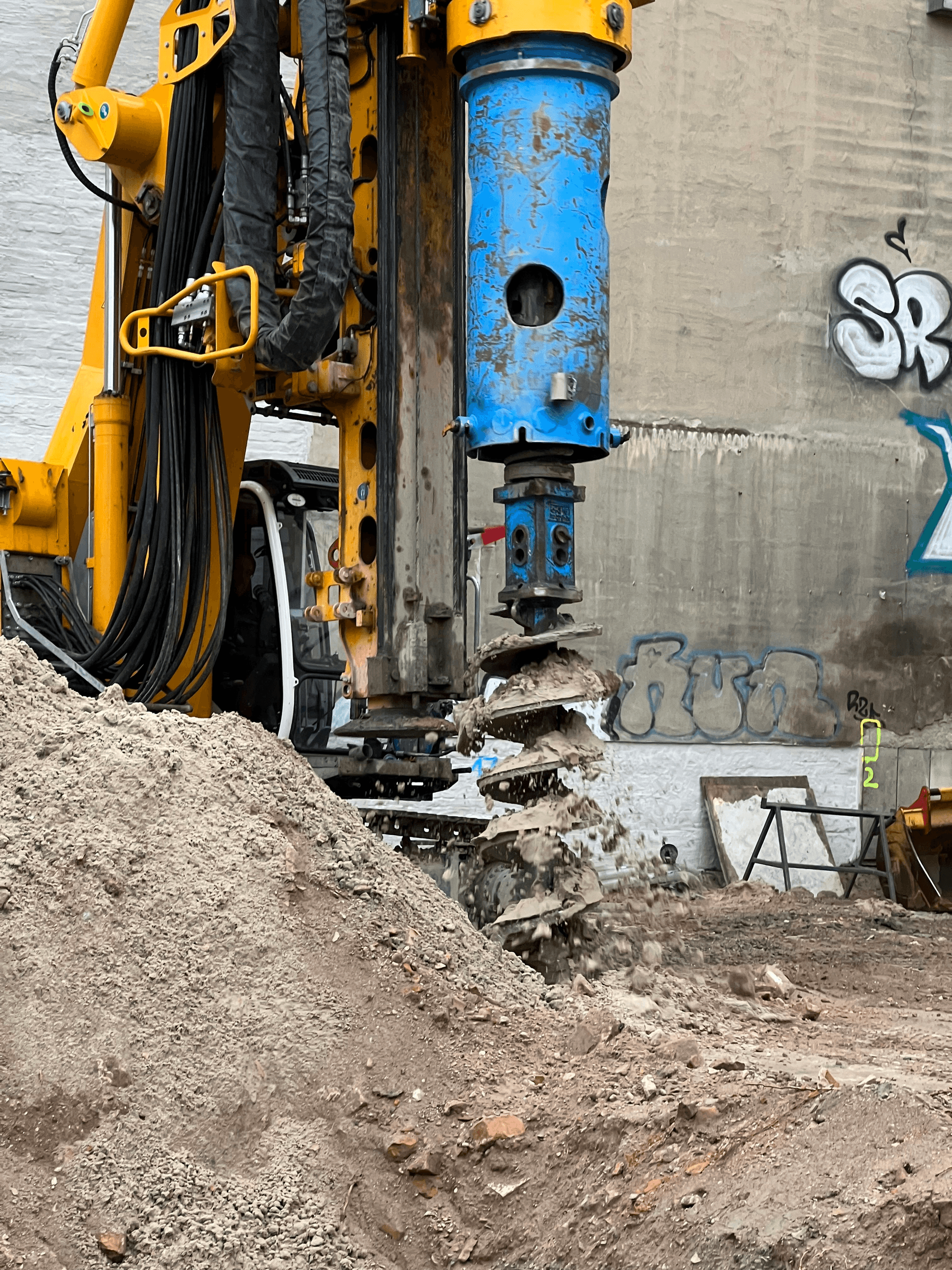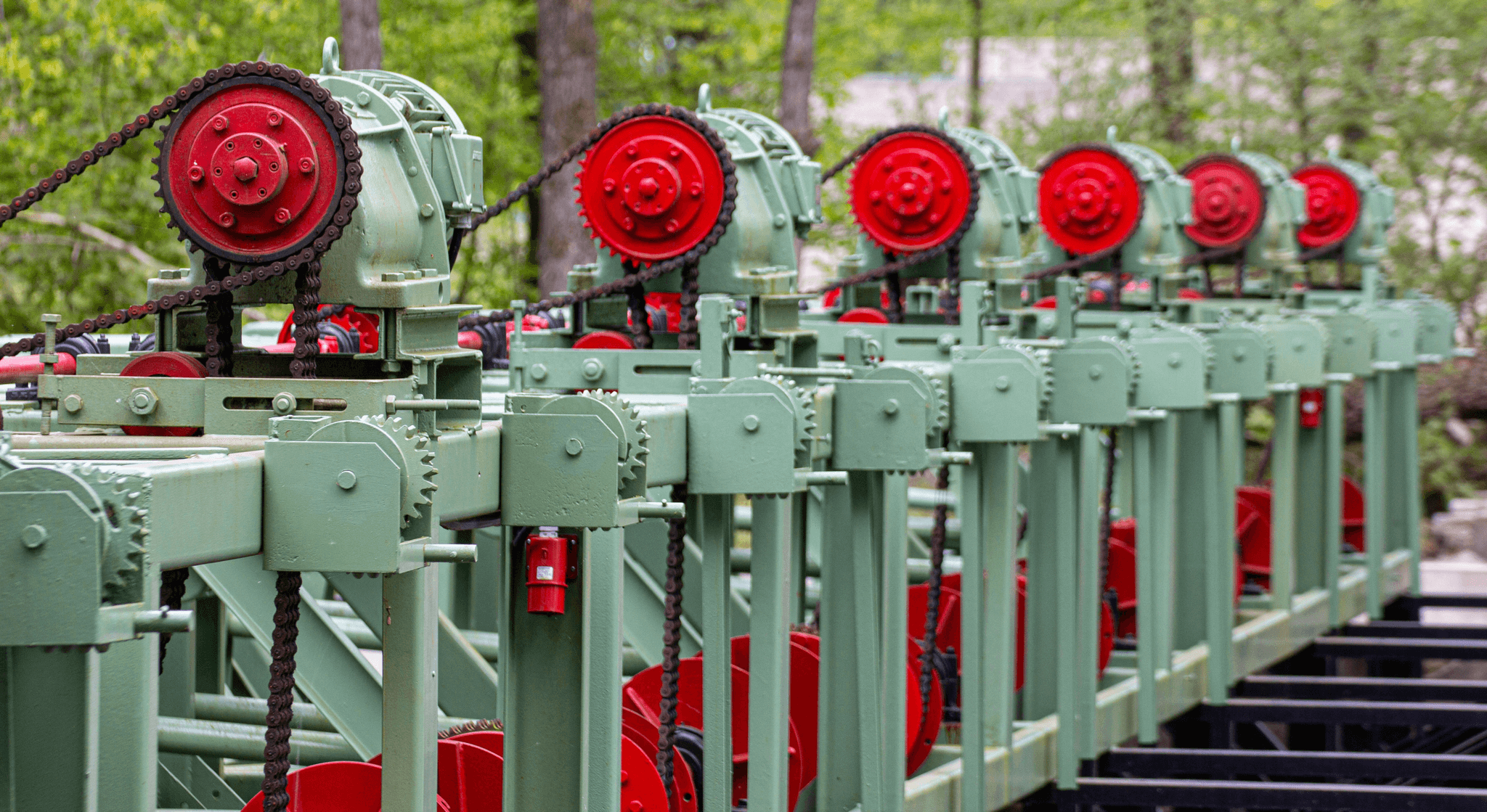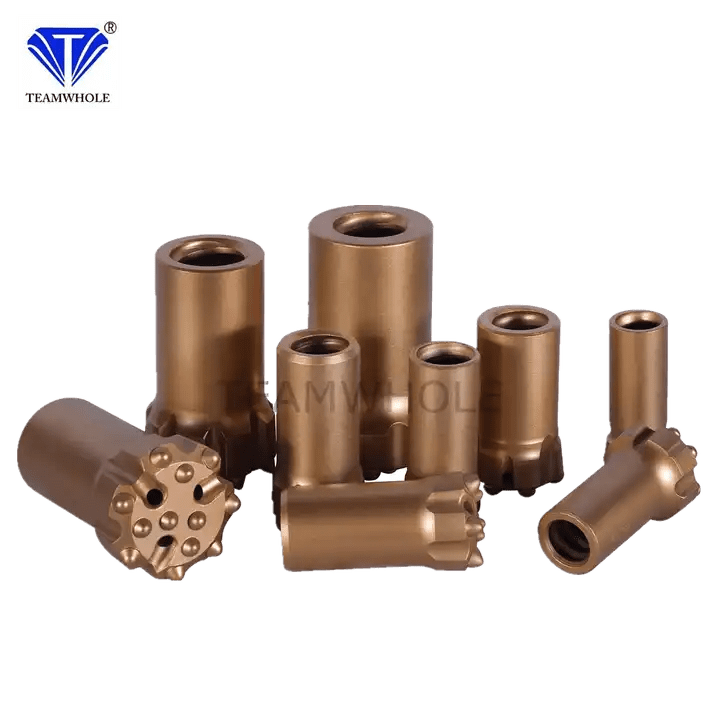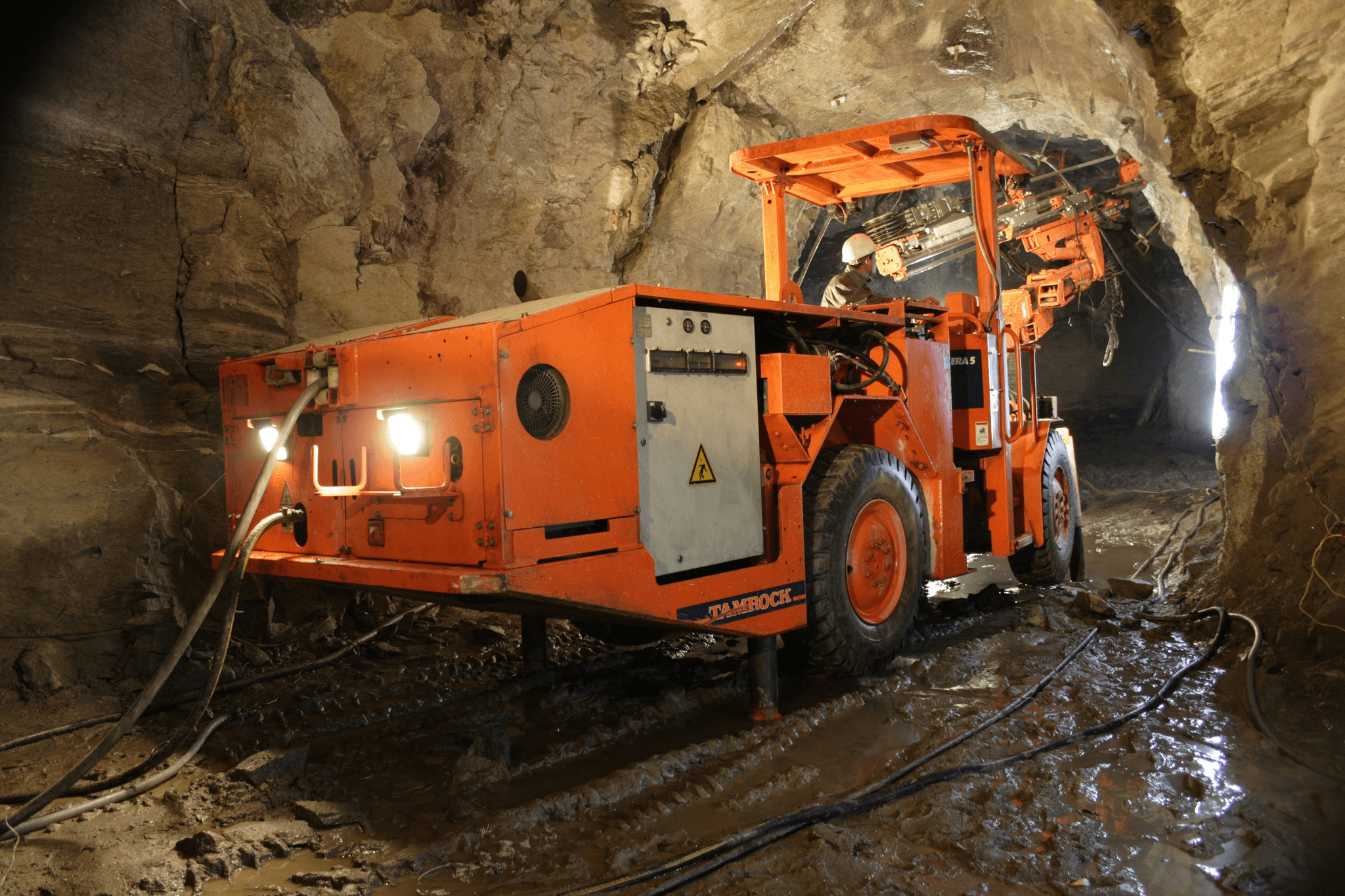Introduction

DTH (Down the Hole) drilling is a crucial process in blast hole drilling operations, known for its efficiency and reliability. Understanding the DTH drilling process is essential for maximizing productivity in mining and construction projects. The use of a DTH drilling machine has revolutionized the industry, offering numerous advantages over traditional methods.
Understanding the DTH Drilling Process
The DTH drilling process involves a pneumatic hammer that delivers powerful blows to the drill bit, allowing for high penetration rates in hard rock formations. This method is ideal for blast hole drilling operations, where speed and precision are of utmost importance.
Importance of Efficient Blast Hole Operations
Efficient blast hole operations are vital for ensuring smooth and productive mining and construction projects. DTH drilling plays a key role in this process by providing fast and accurate drilling, ultimately leading to cost savings and increased output.
Furthermore, DTH drilling machines are known for their versatility, as they can be used in various types of rock formations and terrains. This flexibility allows for greater adaptability on the job site, reducing the need for multiple drilling methods and equipment. As a result, project managers can streamline their operations and save time and resources by relying on the efficiency of DTH drilling.
Advantages of Using DTH Drilling Machine
The use of a DTH drilling machine offers numerous advantages, including low air consumption, suitability for complex rock formations, and high penetration rates. These features make it an indispensable tool for meeting the requirements of blast hole drilling operations.
In addition to its low air consumption and suitability for complex rock formations, a DTH drilling machine also offers exceptional accuracy and precision in drilling operations. This precision is crucial for achieving the desired blast hole depth and angle, ensuring that the blasting process is carried out effectively and safely. The ability to drill with pinpoint accuracy makes the DTH drilling machine a valuable asset in mining and construction projects where precision is paramount.
Key Features of DTH Drilling

When it comes to blast hole drilling operations, the DTH drilling machine stands out with its exceptional features. With high penetration rates, this machine ensures efficient and quick drilling, making it a top choice for mining and construction projects. Additionally, its low air consumption makes it cost-effective and environmentally friendly, while its suitability for complex rock formations makes it versatile and reliable.
High Penetration Rates
The DTH drilling machine is known for its impressive high penetration rates, allowing for rapid and efficient drilling in various types of rock formations. This feature is crucial in blast hole drilling operations as it helps save time and resources while maintaining productivity and quality in the process.
Furthermore, the high penetration rates of the DTH drilling machine contribute to reduced wear and tear on drilling equipment, leading to lower maintenance costs and longer equipment lifespan. This means that operators can rely on the machine for extended periods without having to worry about frequent breakdowns or replacements. Additionally, the ability to achieve deep penetration in a short amount of time allows for more precise and controlled drilling, resulting in minimal environmental impact and disturbance to surrounding areas.
Low Air Consumption
One of the key advantages of the DTH drilling machine is its low air consumption, which contributes to cost savings and reduced environmental impact. This feature makes it an attractive option for companies looking to streamline their blast hole drilling operations without compromising on performance.
In addition to cost savings and environmental benefits, the low air consumption of DTH drilling machines also results in reduced wear and tear on equipment. With less strain on the machinery, maintenance costs are lowered, and the lifespan of the drilling equipment is extended. This means that companies can expect a higher return on their investment over time, making DTH drilling an economically savvy choice.
Suitability for Complex Rock Formations
In blast hole drilling operations, encountering complex rock formations is a common challenge. The DTH drilling machine's ability to handle such conditions with ease sets it apart from other drilling methods. Its adaptability to different types of rock formations ensures that the job gets done efficiently and effectively. Moreover, the precision of DTH drilling allows for accurate borehole placement in intricate rock structures, minimizing the risk of deviation and ensuring optimal results. Additionally, the speed and power of DTH drilling equipment enable swift penetration through challenging formations, reducing downtime and increasing overall productivity on the job site.
Top Requirements for DTH Drilling

When it comes to blast hole drilling operations, the top requirements for DTH drilling include the need for quality DTH drill bits that can withstand tough rock formations and provide efficient penetration rates. The use of a reliable DTH drilling machine is also essential, as it ensures smooth and effective drilling operations. Understanding the difference between DTH and rotary drilling is crucial for selecting the most suitable method for specific rock formations.
Quality DTH Drill Bits
In blast hole drilling operations, quality DTH drill bits are essential for achieving optimal results. These drill bits are designed to endure the harsh conditions of rock formations and deliver high penetration rates with minimal wear and tear. Investing in premium DTH drill bits ensures that the blast hole drilling process remains efficient and cost-effective, ultimately leading to improved productivity on site.
Furthermore, high-quality DTH drill bits are designed with advanced engineering and cutting-edge materials to maximize performance and durability. This means that operators can rely on these drill bits to consistently deliver precise and efficient drilling, reducing downtime and maintenance costs. With their ability to withstand the toughest rock formations, premium DTH drill bits provide a reliable solution for achieving optimal results in blast hole drilling operations.
Efficient DTH Hammer Drilling
Efficient DTH hammer drilling is another key requirement for successful blast hole operations. The use of a reliable DTH hammer is crucial for delivering powerful impacts to the drill bit, allowing for quick and effective penetration into various rock formations. By ensuring that the DTH hammer is operating at its peak performance, operators can maximize productivity and minimize downtime during blast hole drilling activities.
Understanding the Difference between DTH and Rotary Drilling
Understanding the difference between DTH and rotary drilling is vital in selecting the most suitable method for specific blast hole drilling operations. While rotary drilling uses a rotating motion to create boreholes, down-the-hole (DTH) hammer drilling relies on a percussive action to break through tough rock formations. By understanding these differences, operators can make informed decisions on which method best suits their project requirements.
One advantage of DTH drilling in blast hole operations is its ability to achieve higher penetration rates compared to rotary drilling. This means that DTH drilling can complete the drilling process more quickly, increasing overall productivity on the job site. Additionally, DTH drilling is known for its precision and accuracy, allowing for more precise placement of blast holes, which is crucial in mining and construction projects.
Advantages of DTH Drilling in Blast Hole Operations

DTH drilling machines offer several advantages for blast hole drilling operations, making them a popular choice among mining and construction professionals. The simple structure of DTH drilling machines ensures high reliability, allowing for consistent and efficient performance even in challenging conditions. This reliability reduces downtime and maintenance costs, making DTH drilling a cost-effective option for blast hole operations.
Simple Structure for High Reliability
The straightforward design of DTH drilling machines contributes to their high reliability in blast hole operations. With fewer complex components, the risk of malfunctions and breakdowns is significantly reduced, leading to increased productivity and lower operational costs. This simplicity also makes it easier to train operators on the proper use and maintenance of DTH drilling machines, ensuring optimal performance on the job site.
The straightforward design of DTH drilling machines not only enhances their reliability but also simplifies the maintenance process. With fewer complex components, maintenance and repairs can be carried out more efficiently, minimizing downtime and maximizing the machine's availability for blast hole operations. This streamlined approach to upkeep also reduces the need for specialized technical expertise, making it easier for operators to perform routine maintenance tasks without extensive training.
Customized DTH Bit Steel
One of the key requirements for DTH drilling holes in blast hole drilling operations is the use of quality DTH drill bits made from customized bit steel. These specialized drill bits are designed to withstand the rigors of blast hole drilling, offering superior durability and longevity. The use of customized bit steel ensures that DTH drill bits can effectively handle the demands of various rock formations, delivering consistent performance and minimizing the need for frequent replacements.
Fixed Stabilizer Position for Easy Modification
DTH drilling machines are equipped with fixed stabilizer positions that allow for easy modification based on specific project requirements. This flexibility enables operators to adjust the stabilizer position as needed to accommodate different rock formations and optimize drilling performance. By easily modifying the stabilizer position, DTH drilling machines can adapt to varying ground conditions, ensuring precise and efficient blast hole operations.
In conclusion, the advantages offered by DTH drilling machines play a crucial role in enhancing efficiency and productivity in blast hole operations. From their simple yet reliable structure to their customized bit steel and flexible stabilizer positions, these features make DTH drilling an ideal choice for meeting the requirements of blast hole drilling operations.
Conclusion

When it comes to blast hole drilling operations, the requirements for DTH drilling are crucial for achieving optimal results. Quality DTH drill bits play a key role in ensuring efficient and effective drilling, while maximizing efficiency with DTH hammer drilling is essential for high penetration rates and low air consumption. Understanding the difference between DTH and rotary drilling is also important for selecting the most suitable method for your specific needs.
The Impact of Using Quality DTH Drill Bits
Investing in quality DTH drill bits is not only beneficial for immediate cost savings and improved performance, but it also contributes to long-term sustainability. With reduced downtime and increased productivity, companies can operate more efficiently, leading to a smaller environmental footprint and less resource consumption. This aligns with the growing emphasis on sustainable practices within the mining and construction industries, positioning businesses as responsible stewards of the environment while maintaining profitability.
Maximizing Efficiency with DTH Hammer Drilling
The use of DTH hammer drilling is essential for achieving maximum efficiency in blast hole operations. With its ability to deliver powerful impact energy directly to the drill bit, this method ensures fast and effective penetration through hard rock formations. By utilizing advanced DTH hammer technology, you can significantly reduce drilling time and energy consumption, resulting in improved overall efficiency and productivity.
By harnessing the power of DTH hammer drilling, operators can also minimize the risk of hole deviation, ensuring that blast holes are drilled accurately and in the desired direction. This precision is crucial for maximizing the effectiveness of blasting operations and minimizing potential safety hazards. Additionally, the use of advanced DTH hammer technology allows for greater control over hole depth and angle, further enhancing operational efficiency and reducing the need for rework or adjustments.
Making the Most of DTH Drilling in Blast Hole Operations
In order to make the most of DTH drilling in blast hole operations, it's important to carefully consider factors such as equipment selection, maintenance, and operational techniques. Understanding the specific requirements for DTH drilling holes in blast hole operations is essential for achieving optimal results. By investing in high-quality equipment, such as a reliable down-the-hole drilling machine and top-notch DTH drill bits, you can ensure smooth and efficient operations that meet your project's needs.
In addition to investing in high-quality equipment, it's important to prioritize regular maintenance and servicing of your DTH drilling machinery. By ensuring that all components are in optimal condition, you can minimize downtime and maximize productivity. Implementing a proactive maintenance schedule will also help prevent costly repairs and extend the lifespan of your equipment, ultimately saving you time and money in the long run.

